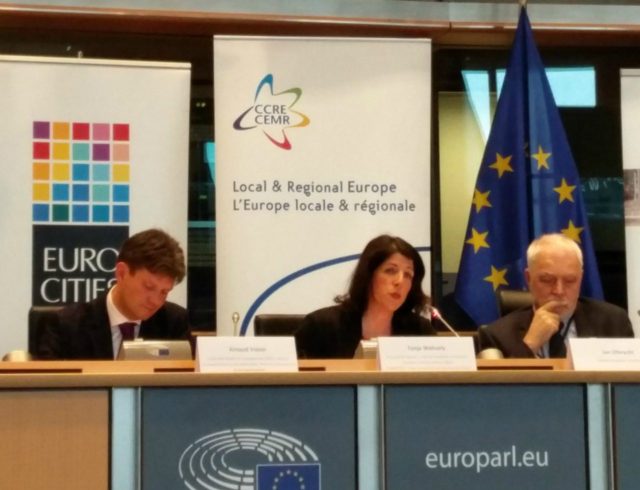Members of the European Parliament and “progressive” city mayors from across the continent have met to discuss “tackling Euroscepticism and populism”.
“At a time when Europe is striving to retain its legitimacy and relevance in the face of growing disillusionment and Euroscepticism, cities can provide a critical link with citizens”, announced the website of Tuesday’s ‘Eurocities’ summit.
During the meeting, leaders suggested a wide range of potential remedies, including handing regions more funds, pro-European Union (EU) “education”, closer ties with Russia, and ending the migrant crisis.
Peter Kurz, the mayor of Mannheim in Germany, implied people were falling out of love with the EU because they were ignorant. “Europe needs more political education,” he said, according to EURACTIV.
“People are not against Europe, people have a problem with the EU as it works today,” claimed Chief Brexit negotiator for the European Commission Guy Verhofstadt.
Last month, former president of the European Parliament Martin Schultz said populism was a “virus” that “could lead to the end of the EU”, just days after Mr. Verhofstadt said the bloc faces an “existential crisis” and could “disappear”.
Zoran Janković, mayor of Ljubljana in Slovenia, called for the EU to be less hostile towards an increasingly nationalistic Russia, a view popular in some less liberal Eastern European states.
He demanded the abolishment of sanctions against Russia, adding: “Anyone who wants to be in [the EU] should be included.”
“Europe has too slow decision process [sic], we have to remove the embargo to Russia. We have to compete with China and the new America,” Luigi Brugnaro, mayor of Venice said, echoing Mr. Janković.
“Maybe the time has come to look into ourselves and see what we have done wrong. We should wonder why populism is so high right now,” he added.
However, Frans Timmermans, first vice-president of the European Commission, said redistributing resources to rural and deprived areas could make the European government more popular with voters.
“You can’t look at the development of cities without also looking at development of rural areas. We need to avoid the same nation living in two different worlds depending if we live in cities or rural areas,” Mr. Timmermans said.
“We are well off today, but we’ll be screwed tomorrow,” he added.

COMMENTS
Please let us know if you're having issues with commenting.